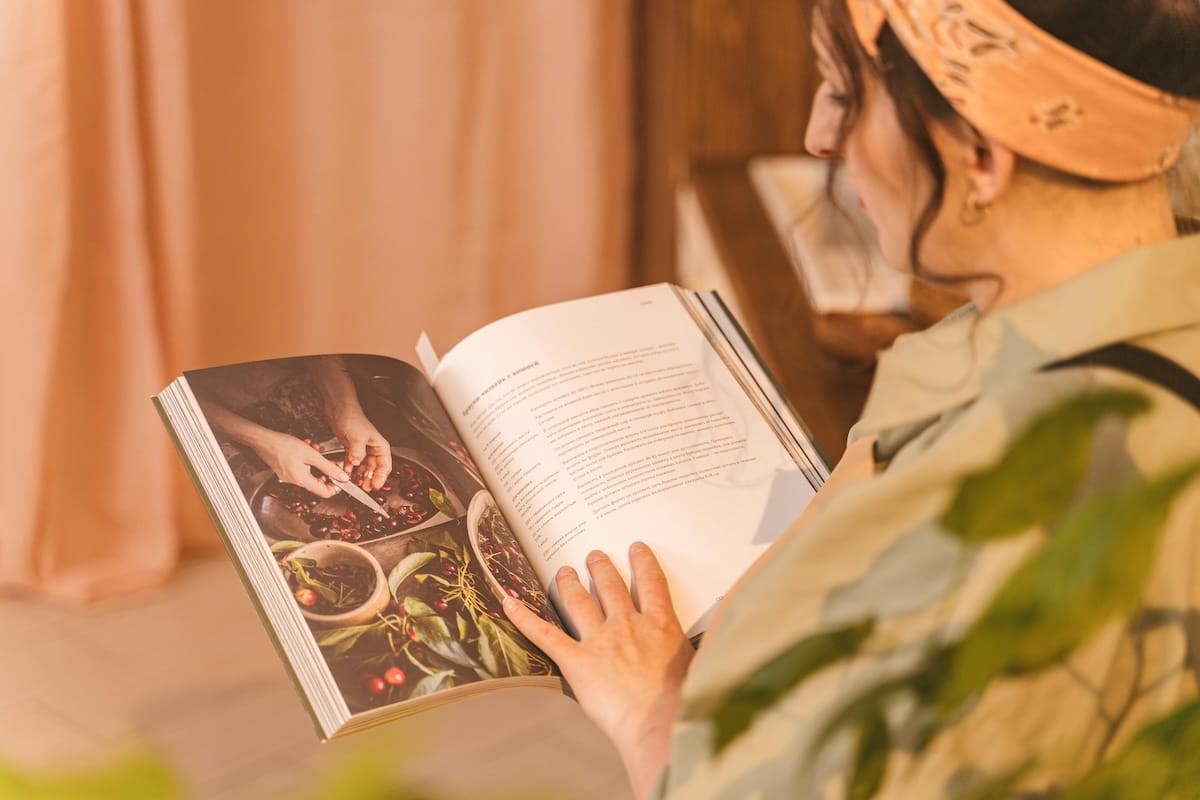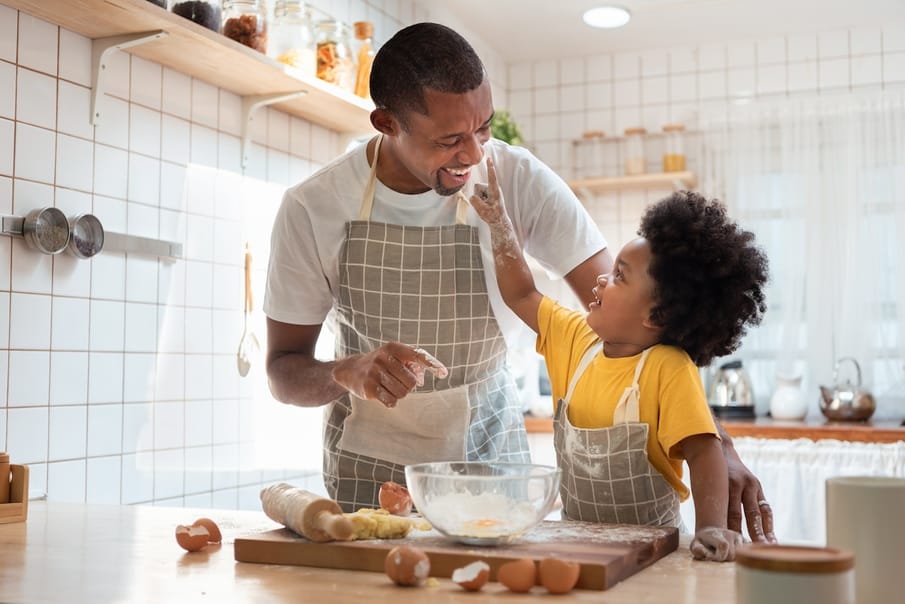Early research shows that the simple act of cooking could have a positive impact on our wellbeing. So, why does this link exist, and how can you capitalise on it?
Cooking can sometimes seem like drudgery, a rushed affair at the end of the day. However, what if we consider it differently: an opportunity to slow down, to enjoy taste and flavour, and to really be in the moment?
Doing so could harness the positive effects of cooking on our mental health, which are so pronounced that some therapists are now prescribing culinary therapy to their patients. It’s a relatively new form of mental health support, but interest is rapidly growing. So, if you want to try a different approach to talking through your problems, maybe it’s time to get creative in the kitchen.
Anecdotally, perhaps you can remember a time when cooking something delicious made you feel a sense of accomplishment, or when getting absorbed in preparing food took your mind off a problem. Research into the benefits of cooking therapy is still in its infancy, but there is growing evidence that it can help our mental health. In one study, published in the Journal of Burn Care and Research, it was found that taking part in cookery interventions resulted in less anxiety in burn victims. Another study shared in the journal Progress in Rehabilitation Medicine saw that cooking reduced the psychological symptoms of dementia, such as anxiety. And a survey of New Zealand teenagers, published in Nutrients, found that those who could cook a meal reported happier feelings overall.
Mental health and cooking is an area of interest for Dr Nicole Farmer. In an interview on the ‘Speaking of Science’ podcast, she said: “What we found in the literature is that there is intriguing evidence that cooking improves one’s global sense of self. That can come through cooking confidence, or through improved relationships through sharing food, or engaging with people regarding recipes. We also found some studies that looked at the quality of life of people who went through cooking interventions, and their quality of life assessments improved.’’
Tempted to try it out? Here are some ideas to start harnessing the benefits of cooking.
Seek inspiration
The repeated dilemma, day after day, of what to cook for dinner can be overwhelming. One thing I have begun implementing in my own life is the concept of a ‘chef’s date’. Perhaps you have heard of the concept of ‘the artist’s date’, from the book The Artist’s Way by Julia Cameron. It’s a once-weekly date to nurture your inner artist to boost creativity. If you feel uninspired about cooking, then feeding your inner cook can be one way to bring back pleasure and inspiration to cooking and food.
Choose an activity that might inspire your cooking creativity. Some ideas could include:
-
Take a wander around your neighbourhood/nearby city, and browse the menus outside restaurants.
-
Look at cookbooks in your local library.
-
Flick through cookery magazines or websites.
-
Watch a cookery YouTube channel or listen to a food podcast.
-
Take a virtual online trip to a food destination like London, New York, or Paris, and look at the menus of restaurants online. What’s on the menu, and how could you create a simpler version at home?

Having something to prepare, which inspires and uplifts you, can already be a mood booster. It’s no longer about preparing something just because you have to, but because it’s going to be delicious!
Slow preparation
Slow cooking can give you an opportunity to enjoy the process. Is there a podcast, audiobook, or video on YouTube that you’d like to listen to? Some upbeat music, or just some well-needed silence? Choosing something to stimulate your mind can stop cooking from being a means to an end, but a moment to enjoy.
Choose a time to cook when you aren’t in a rush, for example, a weekend afternoon when you don’t have anything planned. The slower you go, the more relaxed you may feel. You could try sitting at the kitchen table to chop, or having a moment in the open air if you have a garden or balcony.
I love pre-preparing everything in small bowls like they do on the cooking shows. So if I’m making a curry with lots of steps I’ll put the chopped onion in one bowl, garlic and ginger in another, and put the different sets of spices in their own individual bowls. That way there’s no sudden rush to get everything ready.
Tasting as you go
Are you the kind of person who likes to follow a recipe, or do you prefer to experiment a little? Tasting food as you go can give you the opportunity to slow down, and experience the pleasure of heightened taste awareness.
Niki Segnit is the author of The Flavour Thesaurus, and Lateral Cooking – a guide to being more creative in the kitchen. Her work helps chefs understand how certain foods pair well together to create the perfect combinations.
Niki says: “If you really want to freestyle, be like a perfumier, and just open your spice cupboard. Toast some spices with some oil and taste them. Notice the flavour of the spices on their own, and then in different combinations. You can see what each spice contributes and understand why, for example, cumin, coriander seed, and garam masala are so often together in Indian cooking.’’
So, next time you have a few hours to spare, why not step into your kitchen, see what’s available, and seek out a bit of creative input to conjure up something to tickle your tastebuds? It might just boost your mood too.


Comments